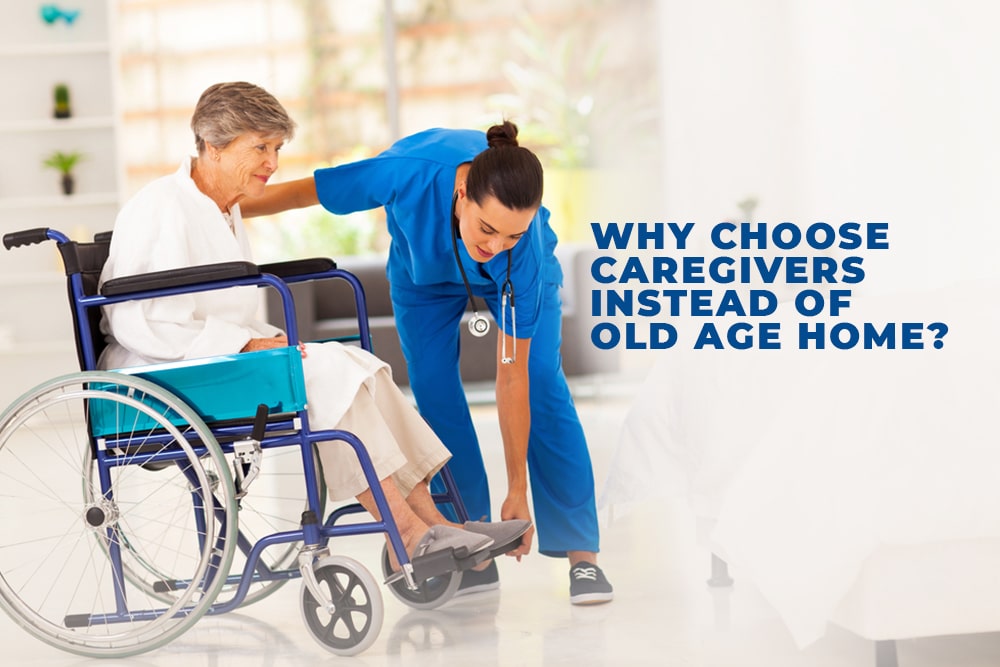Family is that one bond that lasts forever. No matter how old you become, no matter what your achievements are, no matter how far you are from them, your parents will always love you for who you are. When you cannot always be available for your old parents that is the time when you trust someone. And that someone will take your place when you are not available for your parents. That’s where caregivers/ caretakers come into the picture.
A sudden need of any urgency and you are relieved, your caregiver is there at that moment to ensure their needs are being met which will be lacking at an old age home. Because your caregiver is available 24/7, making you and them at ease. Also, it is very natural for you to worry about your parents, as they grow older, you think about how they will get along from day to day.
There are numerous advantages of having a trained, trusted, and responsible caregiver at home. They can make the elderly recover from an ailment, injury, post-surgery hassle-free and easy. This caregiver will also help the elderly with physiotherapy sessions at home. An elderly who is bedridden or unable to move freely will find it difficult to use the washroom or maintain personal hygiene which is taken care of by a trained nursing caretaker. Having a trained caregiver will ensure any mishappenings like falls, injury and ensure their safety in that feeble age of theirs. In addition, the elderly who stay at home tend to be physically and mentally healthier compared to old age homes.
For the elderly who are suffering from dementia, it is challenging to take care of them which requires knowledge, patience and understanding. Families, generally, lack the experience and skills to understand the age-related conditions and fail to care for their beloved ones properly. Also, it is quite painful to view your beloved parents deteriorate mentally. A Qualified nurse at home can provide a lot of support, as they understand the condition and have all skills and experience to deal with dementia patients rightly.
A medical survey has revealed that people who have a home nursing services facility at home live a longer life. Receiving emotional, physical, medical, and specialized care in their comfort zones helps senior citizens live healthier and longer life. Because no comfort zone can replace one’s own home. Especially your parents may be attached to a particular couch, a favourite chair, a favourite routine, or a favourite view from a specific corner in the house. Besides, relocating can be very stressful. Also, they are left with all the memories of us in that place, when remembered would make them feel nostalgic and happy which will lack at an old age home.
Because ‘IT FEELS LIKE HOME’, with a responsible and trusted nurse at home. You will definitely want to give your parents the best just like they did when you were young! So, consider these points before making a decision.





